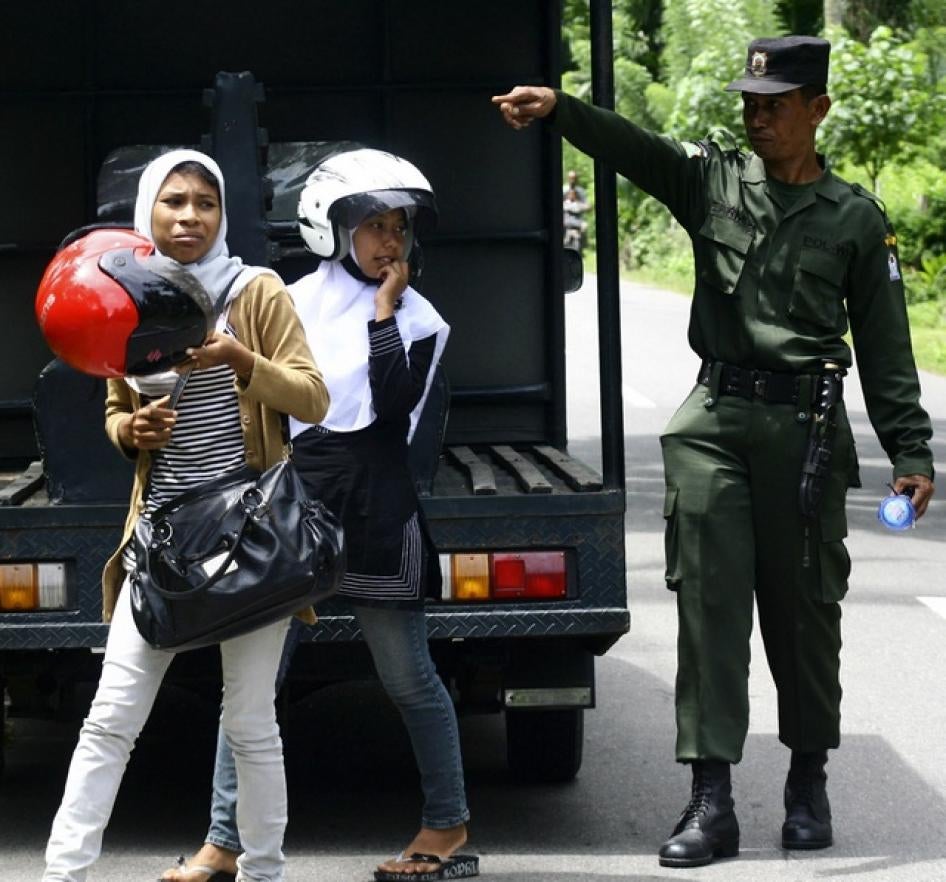The rights of all Indonesians are at greater risk following a Constitutional Court ruling this week that the central government could no longer repeal local Sharia (Islamic law) ordinances adopted in the country.
In recent years, the government had begun analyzing local regulations for compliance with Indonesia’s secular constitution, and pledged to repeal those that didn’t. “I want to underline that Indonesia is not a religiously-based country,” the home affairs minister said in 2015. But the government was tepid in its approach, steering clear of controversy by leaving Sharia ordinances intact.
|
Dispatches
Indonesia’s Jokowi Fails to Abolish Abusive Sharia Laws
Political Foot-Dragging Was Missed Opportunity to Protect Rights
Your tax deductible gift can help stop human rights violations and save lives around the world.
Most Viewed
-
June 24, 2022
Q&A: Access to Abortion is a Human Right

-
April 27, 2021
A Threshold Crossed

-
April 17, 2024
West Bank: Israel Responsible for Rising Settler Violence

-
June 21, 2017
“Just Let Us Be”

-
September 3, 2019
“Don’t Punish Me for Who I Am”




